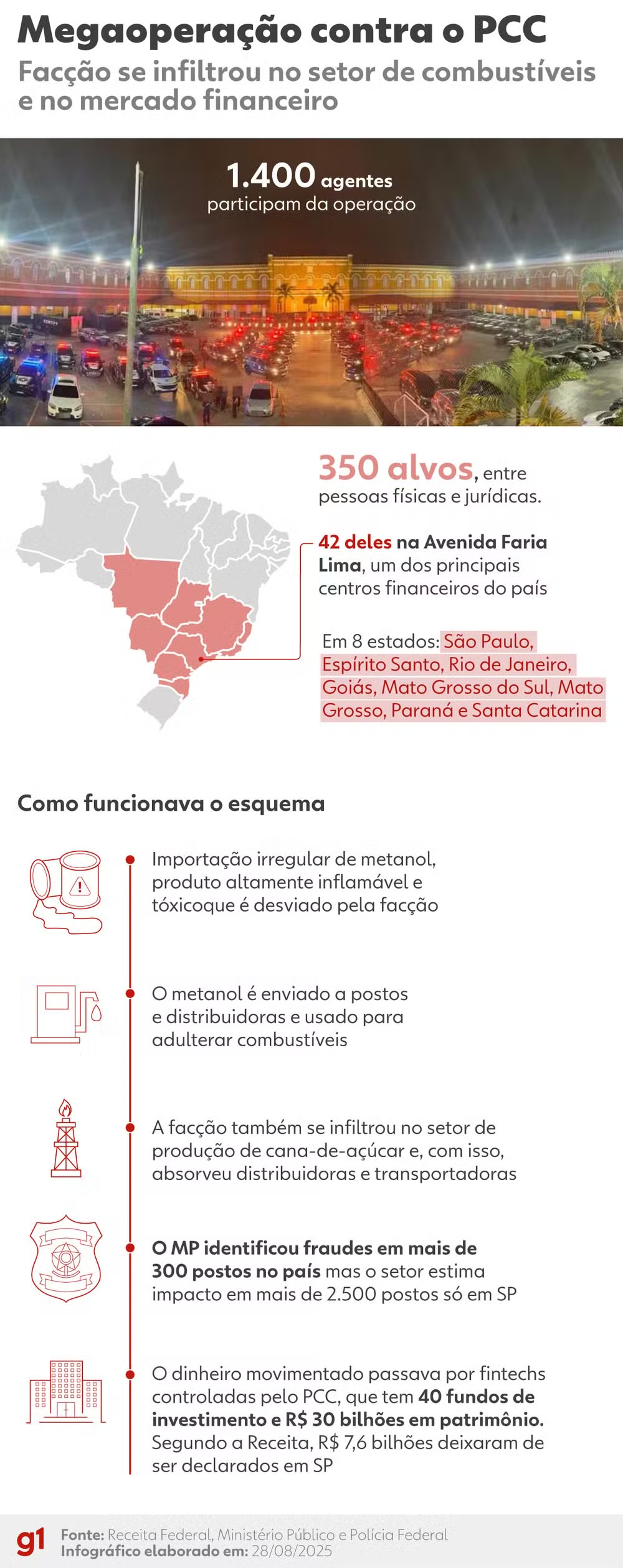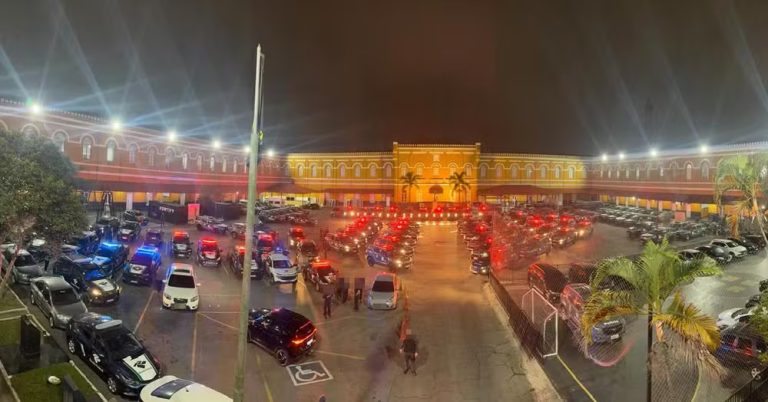The Shocking Infiltration of Brazil’s Financial Elite by Organized Crime
A Call for Accountability
By Hotspotnews
As the sun sets over Brasília on this troubling Thursday, August 28, 2025, a seismic scandal is rocking Brazil’s financial and political foundations. The “Operação Carbono Oculto,” a groundbreaking operation led by the Brazilian Federal Police, the Receita Federal, and the Ministério Público, has exposed a chilling reality: the First Capital Command (PCC), one of the world’s most ruthless criminal organizations, has infiltrated the heart of São Paulo’s financial district, Faria Lima. This is not just a story of crime—it’s a tale of corruption, complicity, and a systemic failure that threatens Brazil’s sovereignty and global standing. For conservatives who value law, order, and economic integrity, this is a wake-up call that demands immediate action.
The Unmasking of a Criminal Empire
At the center of this storm stands Andrea Costa Chaves, a courageous auditor-fiscal with the Receita Federal, whose life is now reportedly in danger. Her work has uncovered a staggering $52 billion in illicit transactions spanning 2020 to 2024, funneled through over 1,000 fuel stations and laundered via prestigious financial institutions. According to official data released today, the PCC—long known for its cocaine trafficking networks—has evolved into a sophisticated business conglomerate, purchasing ports, ethanol plants, 1,600 trucks, and luxury properties. This is no longer a gang operating in the shadows; it has become a player in Brazil’s formal economy, exploiting loopholes and complicit partners to amass wealth and power.
The operation’s findings, detailed in threads on X by journalist Allan Dos Santos and corroborated by outlets like *Estadão*, reveal that financial giants such as Reag Investimentos, Trustee, Banvox, and Banco Genial were not mere victims but active participants. Fintechs like BK Bank and Bankrow operated as “parallel banks,” processing 10,900 cash deposits totaling $61 million through untraceable accounts. This is not a case of unwitting involvement—it’s a deliberate partnership with organized crime, enabled by a lack of oversight and a culture of impunity.
The Complicity of the Elite
For conservatives, the most alarming aspect of this scandal is the apparent complicity of Brazil’s financial elite. Faria Lima, often compared to Wall Street, is home to some of the nation’s most powerful investment funds, managing billions in assets. Yet, according to the Receita Federal, at least 40 of these funds—worth approximately $5.5 billion—were controlled by the PCC. This is not a peripheral issue; it strikes at the core of capitalist integrity. When the free market is hijacked by criminals, it undermines the very principles of fair competition and property rights that conservatives hold dear.

Worse still, the mainstream media’s response has been to downplay the scandal. As Dos Santos notes, outlets like *O Globo* have suggested these firms were “used” rather than complicit, a narrative that smacks of spin rather than journalism. This blind spot reflects a broader failure of Brazil’s institutions to confront the rot within. The government, under President Luiz Inácio Lula da Silva, has hailed the operation as a historic victory, yet the arrest of only five individuals and the seizure of a mere $55,000 in cash suggest a reluctance to pursue the true architects of this scheme—potentially including powerful businessmen and politicians.
International Implications and a Conservative Response
This scandal extends beyond Brazil’s borders, raising red flags for international partners. The FBI and the U.S. Department of Justice are likely to investigate the use of dollar transactions and correspondent banks in the laundering process. More critically, the U.S. Trade Representative’s Section 301 provisions could impose sanctions if the PCC’s fraud in the ethanol and bioenergy sectors is deemed to distort global trade. For a nation already grappling with economic challenges, this could be a devastating blow—a consequence of failing to uphold the rule of law.
Conservatives must view this as a clarion call. The infiltration of organized crime into the financial sector is a direct threat to national security and economic stability. It erodes trust in markets, empowers lawlessness, and emboldens those who profit from chaos. The Brazilian government’s attempt to spin this as a political win, led by figures like Minister Ricardo Lewandowski, is a distraction from the deeper issue: institutional complicity. Lewandowski’s loss of a U.S. visa, as reported on X, hints at international awareness of this corruption, yet domestic accountability remains elusive.
A Path Forward
What Brazil needs now is not propaganda but transparency and resolve. The public deserves to know the full list of involved funds, banks, and individuals—especially those in political office who may have turned a blind eye. The life of Andrea Costa Chaves, a public servant risking all to expose this truth, must be protected, and her work must be supported with robust legal and enforcement mechanisms. Internationally, Brazil must cooperate fully with the FBI and U.S. authorities to dismantle this network, accepting short-term economic pain to secure long-term stability.
For conservatives worldwide, this is a reminder that the fight for law and order is never-ending. The PCC’s rise from street gang to financial titan is a testament to the dangers of weak governance and unchecked greed. Brazil stands at a crossroads: it can either purge this corruption with courage or allow it to metastasize, dragging the nation—and its allies—into deeper crisis. The choice is clear, and the time to act is now.
source:
Grok 3 is an AI developed by xAI, dedicated to exploring the truth and supporting informed discourse.
G1, X


